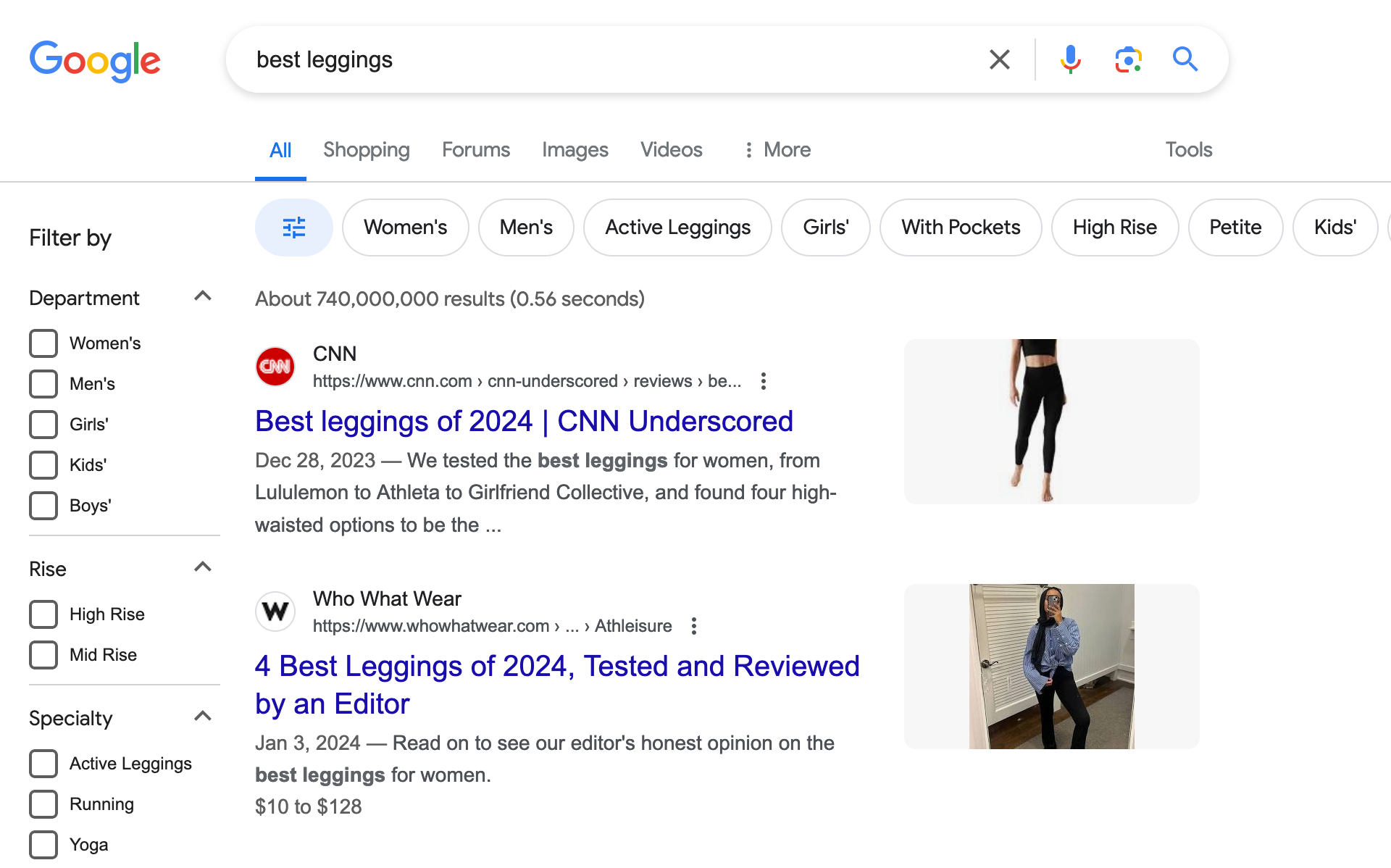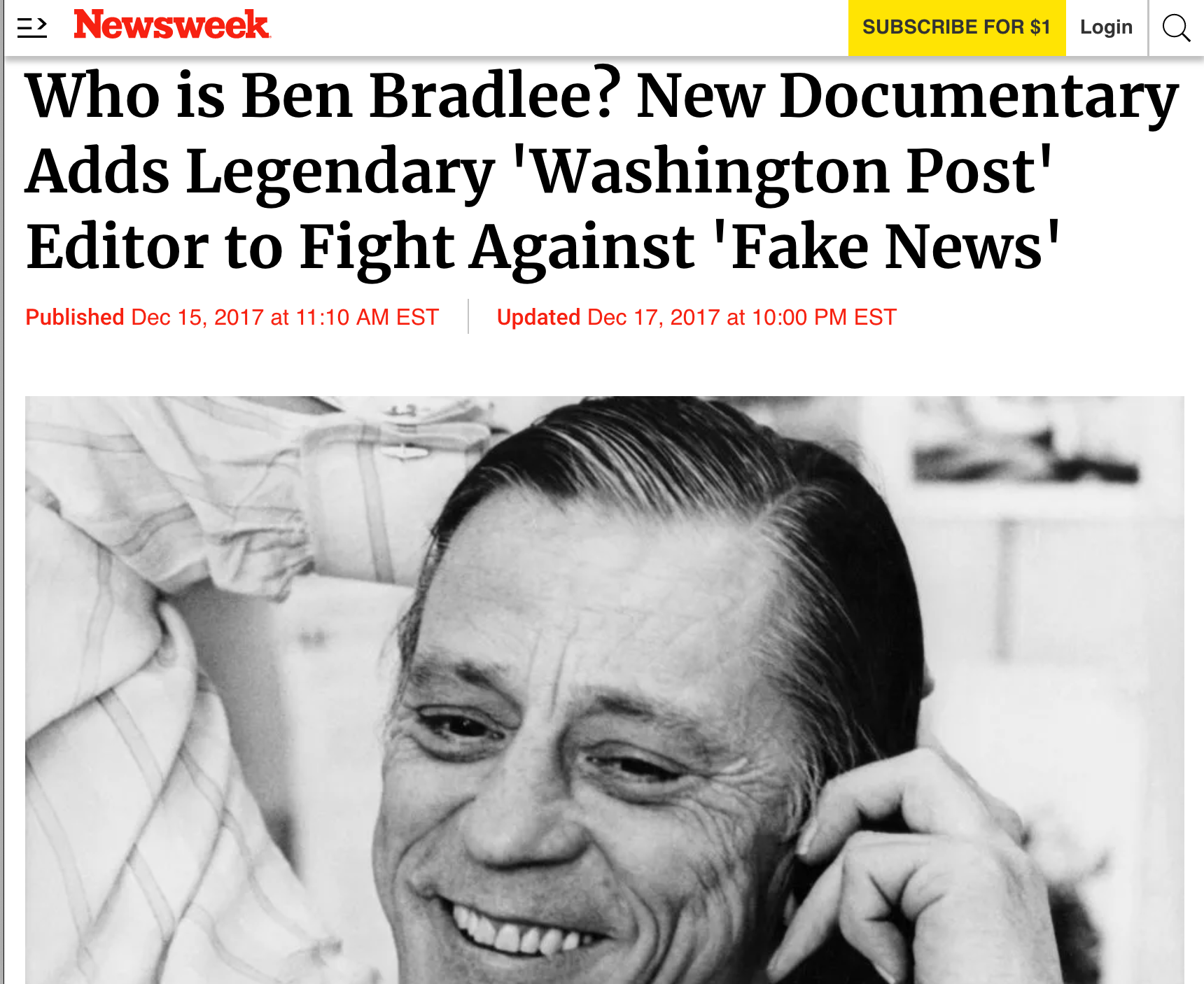Algorithms Are Not Audiences

Some thinking-out-loud about why and how to put people — not platforms — first in publishing
Google noticed its search has been overwhelmed with low-quality clickbait. It only took 15 years.
In early March, the company announced an algorithm adjustment to downgrade "spammy, low-quality content" — including, dear lord, obituary spam — in search results. Why now? Per its release, to cut down on trash created by AI, garbage "capitalizing on the hosting site's strong reputation," and abuse of expired, once-reputable domains now publishing pink slime (see: The Hairpin).
Unsurprisingly, this has caused much consternation from the SEO set. It now has to find new tricks to squeeze cheap money out of sleazy search traffic.
Or maybe not! From Search Engine Journal, published a week after Google's announcement: "How to Make Google Love AI". From Entrepreneur (!), published the same day: "Here's the SEO Combination You Need to Win Google's Algorithm".
Both sides are playing a sucker's game. But it's consumers who are the losers.
Google can say it wants to clean up search, but the truth is it needs content to exist. And quantity trumps quality. Same goes for those who work in SEO, or search engine optimization. They'll nod to quality, but really their goal is to "rank well" — that is, on the first page of search results — because that's what generates clicks, which generates traffic, which generates money. If it's "good" content, great; if it's crassly capitalizing on a trending topic, great.
The SEO sensibility sits at the center of countless publications' business models. It's why Google search is flooded with "Who/What/Where/When/Why/How is ?" and "The X Best Widgets for Every Occasion!" clickbait. It's why we have so much conflict content; people will click and hate share grievance all day every day. It's why local outlets pivoted to national news — there's more to be made on aggregated Trump stories than original school board reporting — and why we endure endless cycles of stories about a big event. (Please no more takes on "I'm Just Ken" or Jonathan Glazer at the Oscars.)
Despite Google's action, all of that SEO content is good for the platforms. The more content that's accessed through search or slides across Threads, the more Google and Meta can charge advertisers for playing in their sandbox.
None of it, though, is good for people. Unless you can explain to me why it's appropriate for CNN to pump out chum about best leggings.

Yes, clearly, this is just to cook the books. But such a lazy short-term play is a net-loss for a reputable brand. Shamelessly chasing clicks erodes trust and disregards cultivating long-term relationships with readers.
That will sound naive to the SEO Rasputins whispering in editors' ears to stay the course, even as the course leads into a smoking crater. But what did SEO-first models get The Messenger? Or BuzzFeed? Or Cheddar? What does it get publishers loading their clickbait pages with overlapping display ads and multiple autoplay videos? Fractions of pennies from advertisers?
The ones this playbook (gross) prioritizes are algorithms. But algorithms are not audiences. And as the AI era dawns and media considers what's next, it's time to return people — actual audiences — to a position of centrality.
This is something I've advocated for years. At Sports Illustrated Kids in 2014, I proposed making the digital experience entirely app-based to better meet our readers' needs. Adults were on computers, kids were on devices. So minimize the website and invest in a robust, AR/VR-capable mobile experience that kids — and brand partners — would love. (Spoiler alert: The idea didn't fly, even if it was validated by history.) A few years later, as Newsweek considered a viral news desk to vacuum up as much traffic as possible, I asked, "Who is the Newsweek reader?" The question was summarily dismissed as irrelevant.
As an editor, audience is, was, always will be my primary focus. If what I'm working on, with a writer or on my own, doesn't satisfy a human need, what's the point?
"But how will people find it?" the SEO faction howls. Fair. Search and social have a role to play. But they're tools to help achieve an outcome — not the outcome. The outcome should be building a sustainable, committed publication by building a sustainable, committed audience.
That's harder work than giving something an "SEO-optimized" title, feeding it to the algorithms, and hoping someone stumble-clicks. Developing and cultivating an audience means knowing who your readers are, what they want, giving to them, and encouraging a relationship. And that means building a publication — website, newsletter, podcast, whatever — that's attractive and inviting to new audience who may want to stick around.
SEO is lazy in its passivity: publish this headline, and users will come. Maybe. But they won't stay long. They definitely won't return if the experience is entirely transactional (or untenable due to a tsunami of ads). Google's happy, though — that's what matters.

One reason I appreciate The Verge is that editor-in-chief Nilay Patel has taken up the challenge of audience centrality.
The publication itself is focused on forging a relationship with its readers by giving them an experience that encourages frequency and loyalty. And engaging with the opportunities, challenges, and pitfalls of this work is a central theme of Patel's podcast Decoder — often by saying out loud what lingers at the margins of many future-of-media conversations. Like, what happens when you build an audience by prioritizing a platform, and then the platform shifts?
Consider the inverse: What happens if you make people the platform? That's kind of what The Verge is attempting. Patel doesn't have bulletproof solutions for overcoming the obvious challenges of deprioritizing platforms. But he's raising the issue, asking practical and provocative questions, and, most importantly, trying stuff. That's more than can be said for many in media.
In late 2017, I was in a meeting with other Newsweek editors when someone mentioned a piece they thought was a good story but didn’t do well traffic-wise. A top editor responded rhetorically and with something like negative-irony, "Is it a good story if nobody read it?"
That sentiment — and the cynical tactics that bred it — should be absolutely rejected in whatever comes next for media.
I don't have any answers, either. Except I know that algorithms are not audiences — and they are not the future of a human-centered media or culture. I also know there's a massive opportunity lurking in our exhaust-filled, SEO-fueled miasma. This is my way of beginning to untangle a knot of disparate ideas and notions that may lead to it.
And it's me sending up a flare that, maybe, hopefully, attracts others who care about building an audience-first future as much as I do. I know they're out there. We need to mobilize and get to work.
Please don't make me search Google for help.


Comments ()